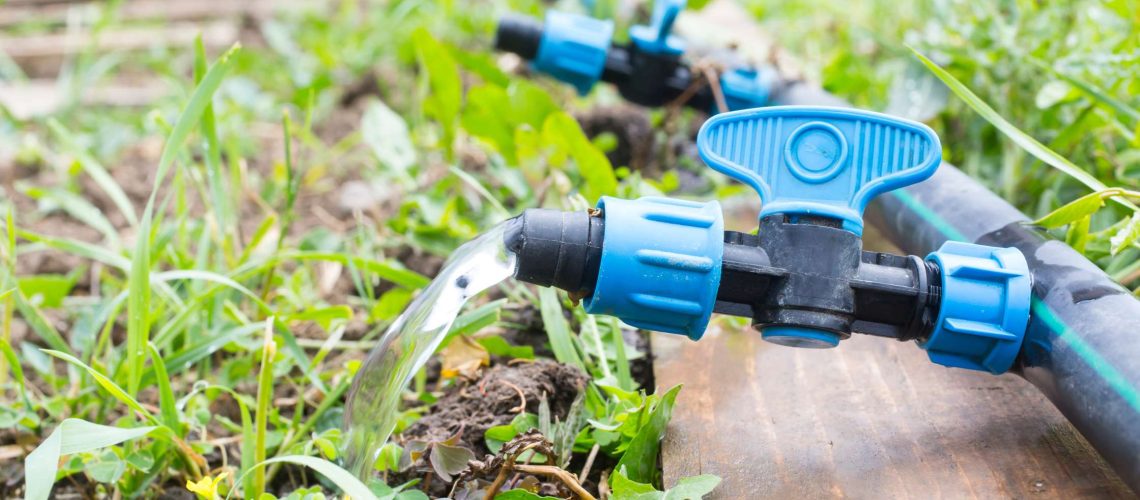Improper irrigation system design wastes water and strains resources. Inefficient systems lead to high bills and affect crop growth. Soil quality suffers from water wastage. Effective design conserves water, reduces costs, and promotes sustainability. Under-watering harms crops, while over-watering causes diseases. Energy-intensive methods like flood irrigation waste energy. Upgrading to drip systems saves energy. Environmental assessments are vital for sustainable practices. Financial losses occur with inefficient designs. Learn how to optimize efficiency and profitability by addressing these issues.
Water Wastage Consequences
If you overlook proper irrigation system design, you risk facing significant consequences from water wastage. Inefficient irrigation systems can lead to excessive water usage, resulting in higher water bills and unnecessary strain on local water resources.
Without careful planning and design, you may experience uneven water distribution across your fields, leading to some areas being overwatered while others remain dry. This imbalance can negatively impact crop growth and yield, affecting your overall agricultural productivity. Moreover, water wastage can contribute to soil erosion and nutrient leaching, ultimately degrading the quality of your soil over time.
To avoid these issues, it’s crucial to invest time and resources in designing an effective irrigation system that meets the specific needs of your crops and soil. Properly designed systems ensure optimal water distribution, helping you conserve water, reduce costs, and promote sustainable farming practices.
Crop Health Implications
Proper irrigation system design directly impacts the health and vitality of your crops. When your irrigation system isn’t properly designed, it can lead to under or over-watering, causing detrimental effects on your crops. Under-watering can result in stunted growth, wilting, and decreased yields as the plants don’t receive an adequate amount of water to thrive. On the other hand, over-watering can lead to root rot, fungal diseases, and nutrient leaching, all of which compromise the health of your crops.
Additionally, improper irrigation system design can create uneven water distribution across your fields. This inconsistency can result in some areas receiving too much water while others receive too little, leading to an imbalance in crop health and growth. Furthermore, waterlogged soil from poor irrigation design can deprive plant roots of oxygen, suffocating them and causing further harm to your crops.
To ensure the health and success of your crops, it’s crucial to invest in a well-designed irrigation system that caters to the specific needs of your plants and fields.
Energy Efficiency Challenges
Ensuring energy efficiency in irrigation systems poses significant challenges that directly impact both crop health and operational costs. One key challenge is the energy-intensive nature of traditional irrigation methods, such as flood irrigation, which can lead to excessive water usage and energy waste. Upgrading to more efficient irrigation technologies, like drip or sprinkler systems, can help reduce energy consumption. However, the initial cost of installing these systems can be a barrier for many farmers.
Moreover, the reliance on fossil fuels to power irrigation pumps and equipment contributes to greenhouse gas emissions and environmental degradation. Transitioning to renewable energy sources, such as solar-powered pumps, presents a solution to reduce carbon footprints and long-term energy costs. Nonetheless, the installation and maintenance of solar panels entail additional expenses and technical expertise.
Balancing the need for energy-efficient irrigation systems with the associated costs remains a critical issue for farmers. Implementing smart water management practices and exploring innovative technologies are essential steps towards overcoming these energy efficiency challenges while ensuring sustainable agricultural practices.
Environmental Impact Assessment
Conducting an environmental impact assessment is crucial for evaluating the ecological consequences of irrigation system design and operation. By assessing factors such as water usage, soil erosion, and chemical runoff, you can understand how the irrigation system may affect the surrounding environment. Improperly designed systems can lead to water wastage, depletion of groundwater resources, and contamination of nearby water bodies with fertilizers or pesticides. These issues can harm local ecosystems, wildlife, and even human health.
Moreover, an environmental impact assessment helps identify potential mitigation measures to minimize harm. This could involve implementing water-saving technologies, using organic fertilizers, or adjusting irrigation schedules to reduce negative effects. Understanding the environmental impact allows you to make informed decisions about the design and management of your irrigation system, promoting sustainability and ecological responsibility. By prioritizing environmental assessments, you can work towards a more efficient and environmentally friendly irrigation system that benefits both your crops and the surrounding ecosystem.
Financial Losses Evaluation
To evaluate the financial losses associated with improper irrigation system design, consider the impact on operational costs and potential revenue losses.
Improperly designed irrigation systems can lead to increased operational costs due to water wastage, energy inefficiencies, and the need for frequent repairs. Water wastage resulting from leaks, overspray, or inefficient water distribution can significantly raise your water bills. Energy inefficiencies, such as using pumps that are too large or running irrigation systems at the wrong times, can spike electricity costs. Moreover, the need for frequent repairs and replacements due to design flaws adds to maintenance expenses.
Beyond operational costs, improper irrigation design can also result in revenue losses. Inadequate water distribution may lead to uneven watering of crops, affecting their growth and quality, ultimately reducing yields. Poor irrigation system design can also result in soil erosion, nutrient leaching, or waterlogging, further impacting crop health and productivity. These financial losses highlight the importance of investing in well-designed irrigation systems to optimize efficiency and maximize profitability.
Let Southwest Florida Services & Supply Safeguard Your Resources
Improperly designed irrigation systems not only affect the company’s bottom line but also contribute to environmental strain, particularly in water-stressed regions like Southwest Florida. Water scarcity and excessive usage can lead to ecological imbalance and regulatory issues.
To mitigate these impacts, Southwest Florida Services & Supply advocates for proper irrigation system design and maintenance. By ensuring systems are efficient and tailored to local conditions, we can conserve water resources, reduce costs, and enhance landscape health.
For expert advice on optimizing your irrigation system, contact Southwest Florida Services & Supply at (239) 657-2429 today.

